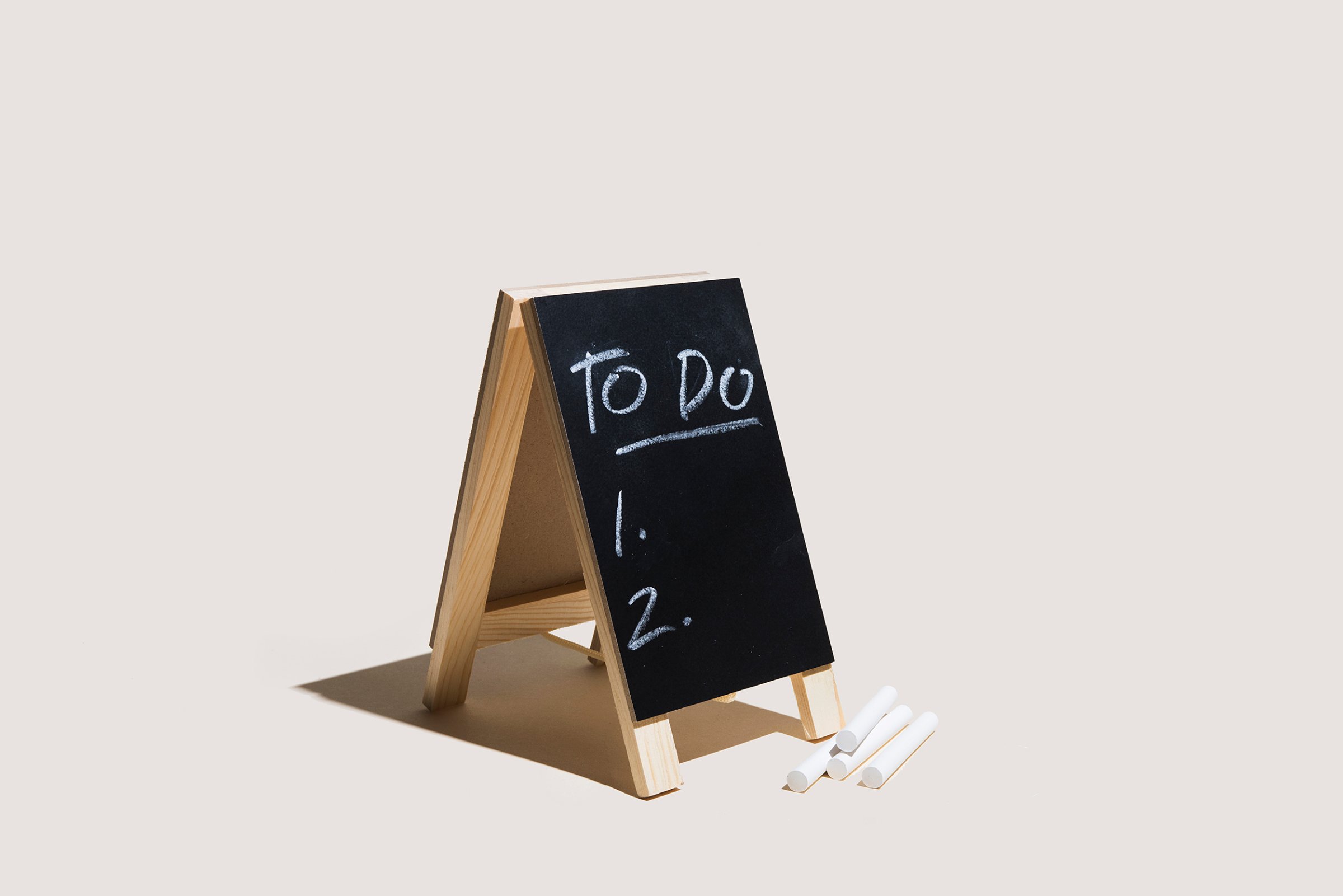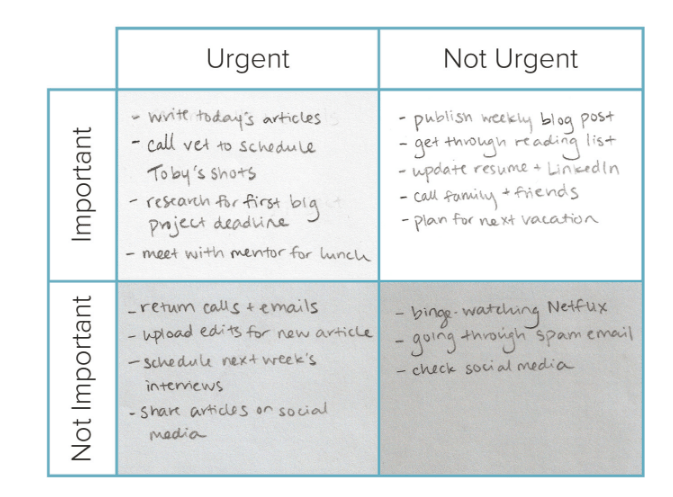

I want you to play a short game with me. Close your eyes and imagine a long to-do list that lays out a mountain of work in front of you. Now imagine crossing something off of that to-do list. How does that make you feel?
Pretty fantastic, huh!
A new study is studying just that.
Business school professors Francesca Gino and Bradley Staats are currently researching how people juggle tasks at work. “Our ongoing research (not yet published) has found that checking off items is psychologically rewarding,” they write. “After you complete a task, being able to literally check a box makes you happier than when you are not given a box to check.” This is what they are calling a “completion bias” attributed to the fact that ”human brains are wired to seek completion and the pleasure it brings.”
That sounds familiar to me. For many busy professionals I know, just thinking about crossing something off their list gives them a hit of dopamine. And that feeling of having completed something has sometimes even felt addictive.
Wanting to get things done may seem like a good thing, but Gino and Staats warn that this may inadvertently push professionals toward easy-to-complete tasks. In one unpublished study, emergency room doctors developed a bias toward treating “lower acuity” patients (aka patients with less severe injuries or illnesses) when their workload increased. Even though they got more patients treated quickly, those that need it most were not prioritized.
Now most of us are not emergency room doctors, and our work isn’t a matter of life and death. But this ongoing research does have important implications for us, too.
I think we can all agree that in order to be our best selves at work, we need to be working on the most important tasks, not the easiest to complete. So to help you avoid completion bias, I’ve pulled together a quick audit to help you assess if you might be falling into that trap:
Read more: 8 Times You Don’t Owe Anyone an Apology
1. How Are You Using Your Spare Moments?
If you end up with 30 minutes due to a canceled meeting, do you start researching for an upcoming project or default to checking your email? If it’s the latter, how often is answering your emails the most important thing you could be doing at that moment? Let me guess: rarely.
Chugging through your inbox is one of the easiest-to-complete tasks, meaning it gives us that hit of dopamine. But it’s not the most productive. So, in order to avoid email temptation, keep a list of important things you want to get done on your desk so you can quickly reference them when you’re looking for a new task (for an example, try my 1-3-5 list).
Read more: 11 Ways Emotionally Intelligence People Communicate Better Than the Rest of Us
2. What Have You Accomplished Recently?
Make a list of what you’ve accomplished in the last few days. Now slot those into the matrix below, based on the Eisenhower Method—and be honest with yourself. For each to-do you’ve crossed off, is it urgent or not? Important or not?
Now, does that mix feel right? If most of what you’re doing is not important, but urgent, you might be working reactively, instead of proactively. And if most of what you’re doing is neither—well that can be a very needed wake-up call.

Read more: To-Do Lists Are Great, But Do-Not-Do Lists Might Be Even Better for You
3. What’s Getting in Your Way?
Think about one of the larger projects you need to work on right now—this might be a presentation, an analysis for your manager, or research on a new tool or competitor. How do you set aside time to work on it? Is it intentional, or does it only get done under pressure before a deadline?
And for important projects that aren’t necessarily urgent, do they get done at all without a deadline? Identifying issues getting non-urgent work done is the first step to resist completion bias. By simply recognizing the obstacles, you can start working through them. For example, if you find that you need deadlines, start creating them for yourself by actually putting them in your calendar. Or, alternatively, if you find the issue is that big projects are simply overwhelming because you never feel like you’re making progress, break them down into as many steps as you need. Think of all the dopamine hits you get as you check off each part!
If this research is right, we might be wired to seek out the hit that comes with completing a task, but that doesn’t mean we can’t do anything about it. By being intentional about our work, and reflecting on how we use our time, it’s possible to buck nature and get results in the process.
This post is in partnership with The Muse. The article above was originally published on The Muse.
More Must-Reads from TIME
- Cybersecurity Experts Are Sounding the Alarm on DOGE
- Meet the 2025 Women of the Year
- The Harsh Truth About Disability Inclusion
- Why Do More Young Adults Have Cancer?
- Colman Domingo Leads With Radical Love
- How to Get Better at Doing Things Alone
- Michelle Zauner Stares Down the Darkness
Contact us at letters@time.com